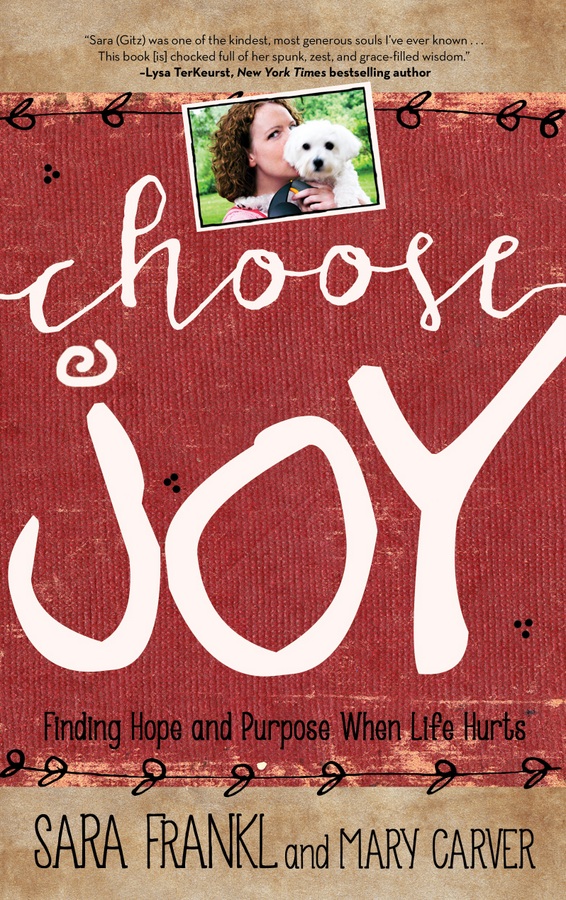I saw a friend after church and stopped by to say, “hello.” She hugged me and mentioned that she’s been reading my series about “Not Sorry.” As we chatted I kept looking down the hallway toward a screeching child, trying to determine if the source of the noise belonged to me – and if I needed to do anything about it. I felt so distracted and hated that, so I said to my friend, “I’m sorry I’m not paying attention right now! I think that might be my daughter making a racket down there! Sorry, sorry, sorry.”
She put her hand on my arm and laughed. Here we were, talking about how we apologize too much – and I was doing that exact thing! Except I truly was sorry for not focusing on my friend, so I decided that my apology in that instance was legit.
The deeper I delve into this topic, the more layers I find and the more questions I have. This morning my question is about apologizing appropriately when we really have messed up. Not in a small thing, like being distracted during a conversation, but a big one. Even if we aren’t going to over apologize anymore, and we are only going to take responsibility for the things we can control, and we are going to check our consciences and be honest about what we truly regret, how do we handle real, big mistakes?
A few weeks ago I was talking with a friend. She was sharing a long list of ways she feels inadequate. As her friend my heart broke for her and I only wanted to encourage her. So when she tried to tell me that she’s a bad mom or a bad friend, I argued. I spoke truth to her, reminding her that she is awesome and that the things she sees as devastating failures are actually just proof that she’s human and nothing that the rest of us don’t struggle with as well.
But then she told me about a mistake she had made in another area, and my heart broke again, this time because I couldn’t argue. She had, indeed, made a mistake. And I wasn’t sure what to say. My instinct was to say, “It’s okay!” but sometimes our mistakes carry consequences and, no matter how sorry we are, the price must be paid. We can’t brush it under the rug or sweep it away with an apology, no matter how sincere.
I’m thinking about that this morning because I messed up.
My weekend was crazy busy and stressful, and I was relieved that both girls slept in late this morning. I slept late, too, and I didn’t even feel too bad about my unwashed hair and rumpled clothes when I dropped them off. As I settled onto my couch (aka, my office) and opened my laptop, I thought about how nice it felt to have a less pressing to-do list this week, how relaxing it was to have some quiet time and an open day to work at a normal pace.
Then my phone rang.
I didn’t recognize the number and let it go to voice mail, but then listened to the message right away. As I did my stomach dropped and my heart began pumping double time. The call had been from a MOPS coordinator, wondering if I was okay, because I’d been scheduled to speak to her group this morning – and I hadn’t shown up.
Immediately my brain started racing along with my heart, as I scrambled to think up an excuse. Could I say that my car broke down? That one of my girls was sick? That I was sitting in the hospital and hadn’t had internet service to email?
GOOD GRIEF. My first response was to cover up my mistake and LIE about it? Ooof. That hurts. But it’s true. That’s where my mind and heart went as I held my phone, arms limp with shock while shame and adrenaline coursed through the rest of me.
I didn’t trust myself to make the right choice. I was so ashamed and felt so guilty that I wanted to do whatever it took to cover it all up and make it [seem] better. I wanted to call her back with a lie or never call her at all. I wanted to curl up on my couch and go to sleep and pretend it didn’t happen.
But instead I hit the call back button and when she answered her phone, voice a little frantic and background noise a little hectic, I simply said, “I’m sorry.”
I told her that I had no excuse. I reassured her that I was fine, just negligent. She kindly promised to reschedule me in the spring and laughingly said it’s a good thing I talk about giving up on perfect. I tearfully agreed.
After we hung up, though, I still felt sick. I still felt shame. I still felt sorry.
Sometimes, sorry is exactly what we should feel and an apology is what we should offer. But in the same way that many of us tend to apologize for the wrong things, I’m realizing that when I’ve truly messed up, I still use the words of apology wrong.
First of all, when I really feel bad about something I’ve done, I wallow in it. I seem to believe that I don’t deserve mercy and even if forgiveness has been offered, it can’t possibly be real. After all, I reason, I SHOULD feel bad. I NEED to feel bad. So if they aren’t going to punish me, then I guess I’d better punish myself! How else will I ever learn? How else will this debt be repaid?
This isn’t the answer! Even in this moment, as I still feel so terrible about what I’ve done, I know that I can’t presume to know the intentions of the person I’ve hurt. If she says she forgives me, well, I have to take her at her word. Otherwise, if I assume she can’t possibly mean it and will probably hate me forever because I am THE WORST, I’m calling her a liar on top of hurting her in the first place!
As for the self-flagellation part of this situation, I need to stop that. You – if you’re beating yourself up over a mistake? – need to stop that. We can learn from our mistakes without replaying them for days or weeks or years. And our debt has already been paid. All we have to do is accept it.
My dear children, I am writing this to you so that you will not sin.
But if anyone does sin, we have an advocate who pleads our case
before the Father. He is Jesus Christ, the one who is truly righteous.
He himself is the sacrifice that atones for our sins—and not only
our sins but the sins of all the world.
(1 John 2: 1-2)
Second of all, when I apologize, I want my words to fix everything. So I apologize and I do it profusely, repeatedly, fervently – as if infusing my words with enough guilt and regret, sorrow and shame will heal the wounds that my actions inflicted.
But as anyone who watches Daniel Tiger’s Neighborhood knows (wait, what? you don’t watch this show every single day at your house?!), “Saying I’m sorry is the first step, then how can I help?” Even if you aren’t a child or have one or, for some other reason, don’t watch this Mr. Rogers spinoff, you can understand this lesson.
When we’ve hurt someone, we must say we’re sorry – but we can’t stop there. The other half of our apology should include a sincere offer to make it better. Despite the most eloquent and moving “sorry,” our actions need to back up our words.
For me, I’m still brainstorming ways to complete my apology to the MOPS group I let down. One friend suggested I take cupcakes if they ask me to speak on another date. That might work!
As you can see from my posts on this topic, I don’t have everything figured out, friends. I am just beginning to understand a few parts of this apology business. Thank you for letting this blog be a safe place to work out my understanding – and then to plan a new, healthier path for the future. I’d love to hear your insight on this particular aspect of “not sorry” – or any other part!
What do you do when you’ve really messed up?
This post is part of the 31 Days Writing Challenge. To read all the posts in this series, click here. And to learn more about this challenge or to find more series to read, visit Write31Days.com. Apple photos courtesy of my brother, James.
This post may be linked to these amazing carnivals and link parties.










I wrote you a looong comment that somehow did not post properly, and I don’t have the energy to retype it.. just know that his post resonated with me from both angles, as the person who doesn’t appreciate hearing the words I’m sorry from someone who needs to DO something to make it right or at the very least acknowledge that their mistake cost me something.. but also from the side of a woman who frequently makes mistakes and has to apologize but feels like my words are very, very empty. We teach our boys to say I’m sorry for ____ (name the specific thing done), please will you forgive me. When I’m asking for forgiveness, I usually say I*m sorry for ___ (mistake) and the way it made you feel _______ (the cost), please will you forgive me. We also ask them to make it right in some way, right now it is usually a hug and a kiss because the sin is almost always physical, but in the future I can foresee it being rebuilding a torn down lego thing or cleaning up a room that got messed up, etc. I think it’s tough for adults to make restitution for their mistakes, the actual doing part of the “sorry,” because it means we have to hang out in the awkwardness for a while… but I think it would be a powerful thing in the forgiveness and reconciliation process.
Thank you so much for retyping your comment, Devi! I’m glad this resonated with you and agree that the actual doing part is hard – but necessary.
This is SO good, Mary. (Also, I am SICK for you that you missed the MOPS group! I wish she woulda called you beforehand!!)
This—> “When we’ve hurt someone, we must say we’re sorry – but we can’t stop there. The other half of our apology should include a sincere offer to make it better. Despite the most eloquent and moving “sorry,” our actions need to back up our words.” This is exactly what I want to teach my kids. I get onto them, MAKE them apologize (??) and they stare at me. This is so hard. Hard for me, hard to teach, hard to do.
In We Choose Virtues (do you have it? I blogged about it a few times), they give language to help kids ask for forgiveness and it’s uncomfortable to even practice it! Anywhoo, I have nothing else to add. I love this and want to think about it more.
She did call me last week. We emailed back and forth just before the weekend. The blame is all on me. :( But back to your question, I haven’t read We Choose Virtues. I’m going to search for your posts now!
I’m trying to learn not over apologize. It drives my husband nuts! But unfortunately I seem to to need legit apologies a lot too. My first reaction when I really mess up is usually about like yours. Or worse, I look for someone else to blame. Yikes! Then comes the apologizing over and over again. I do look for some way to make it right, but unfortunately, sometimes there just isn’t one. Which is why I’m also working on not needing to make those apologies quite as much. Everything is a process isn’t it?
Yes, that’s a big one, too – looking for someone else to blame. I’m guilty of that! But YES, it is a process. :)
I walow in it too!! This is a great post, and a great series. You rock, Mary!
Thanks, friend. xoxo
Would you please come speak to my MOPS group?? (No really… I attend a wonderful group in Lees’ Summit.) I’m loving your series!!
Thank you!! And I’d love to speak with your MOPS group. Email me! :)
Mary, I’m going to meet you this morning!!!
It was so nice to meet you last week!!!